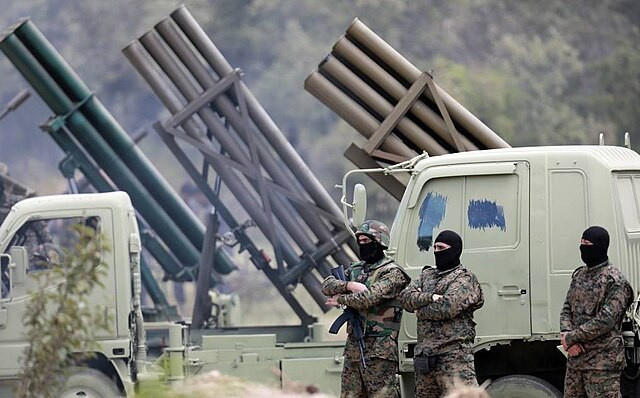The fragile ceasefire between Israel and Hezbollah is already under strain, with both sides accusing each other of violations just two days after the agreement came into effect. The truce, brokered by the United States and France, had aimed to end over a year of intense fighting, but incidents along the border have sparked renewed tensions.
On Thursday, the Israel Defense Forces (IDF) reported identifying "several suspects arriving with vehicles to a number of areas in southern Lebanon, breaching the conditions of the ceasefire." The military stated, "The IDF opened fire toward them," and emphasized its commitment to enforcing the agreement. "The IDF remains in southern Lebanon and will actively enforce violations of the ceasefire agreement," the statement continued.
Meanwhile, Hezbollah officials accused Israel of targeting civilians attempting to return to their homes in southern Lebanon. Hassan Fadlallah, a member of Lebanon's parliament and a representative of Hezbollah, claimed, "The Israeli enemy is attacking those returning to the border villages." He added, "There are violations today by Israel, even in this form," according to Reuters.
Lebanese state-run media reported that two individuals were injured by Israeli fire in Markaba, a village near the border, while Israeli artillery struck multiple other locations. An Associated Press reporter near the border in northern Israel observed the sound of artillery strikes and Israeli drones overhead.
The ceasefire agreement mandates Hezbollah's withdrawal north of the Litani River and the phased return of Israeli forces to their side of the border. In the interim, Lebanese troops and U.N. peacekeepers are expected to patrol the buffer zone. However, full implementation of these measures could take weeks, with Israel retaining security control in the region for now.
The conflict, which began following Hamas' October 2023 attack on southern Israel, escalated into a broader war involving Hezbollah. Hamas' assault left approximately 1,200 Israelis dead and 250 kidnapped, sparking retaliatory Israeli airstrikes and ground operations. While fighting between Israel and Hamas continues in Gaza, the ceasefire in Lebanon was seen as a potential step toward stability.
Lebanese health officials estimate that Israeli military actions during the conflict killed over 3,760 people in Lebanon, predominantly civilians. On the Israeli side, over 70 lives were lost, including civilians and soldiers. The fighting displaced approximately 1.2 million people in Lebanon and tens of thousands in northern Israel. Despite warnings from both Israeli and Lebanese authorities, displaced families have started to return to border areas.
The precise terms of the ceasefire remain undisclosed, but U.S. President Joe Biden emphasized Israel's right to self-defense when announcing the agreement. Similarly, Israeli Prime Minister Benjamin Netanyahu cautioned against violations of the deal.
The year-long conflict in Lebanon unfolded alongside ongoing war in Gaza, where the death toll has exceeded 44,000, according to health officials in the Hamas-controlled territory. Most of Gaza's population has been displaced multiple times due to relentless hostilities.
As the ceasefire holds tenuously, Israel has reiterated its warning to civilians to avoid areas still under military control. Netanyahu stated earlier this week that the withdrawal of Israeli forces would be "gradual" and conditional upon the enforcement of the ceasefire terms.
Despite the agreement, tensions remain high. The Lebanese militant group Hezbollah, which has suffered significant casualties, including the loss of leader Sayyed Hassan Nasrallah, has vowed vigilance. Its fighters, the group stated, "remain fully equipped to deal with the aspirations and assaults of the Israeli enemy."




